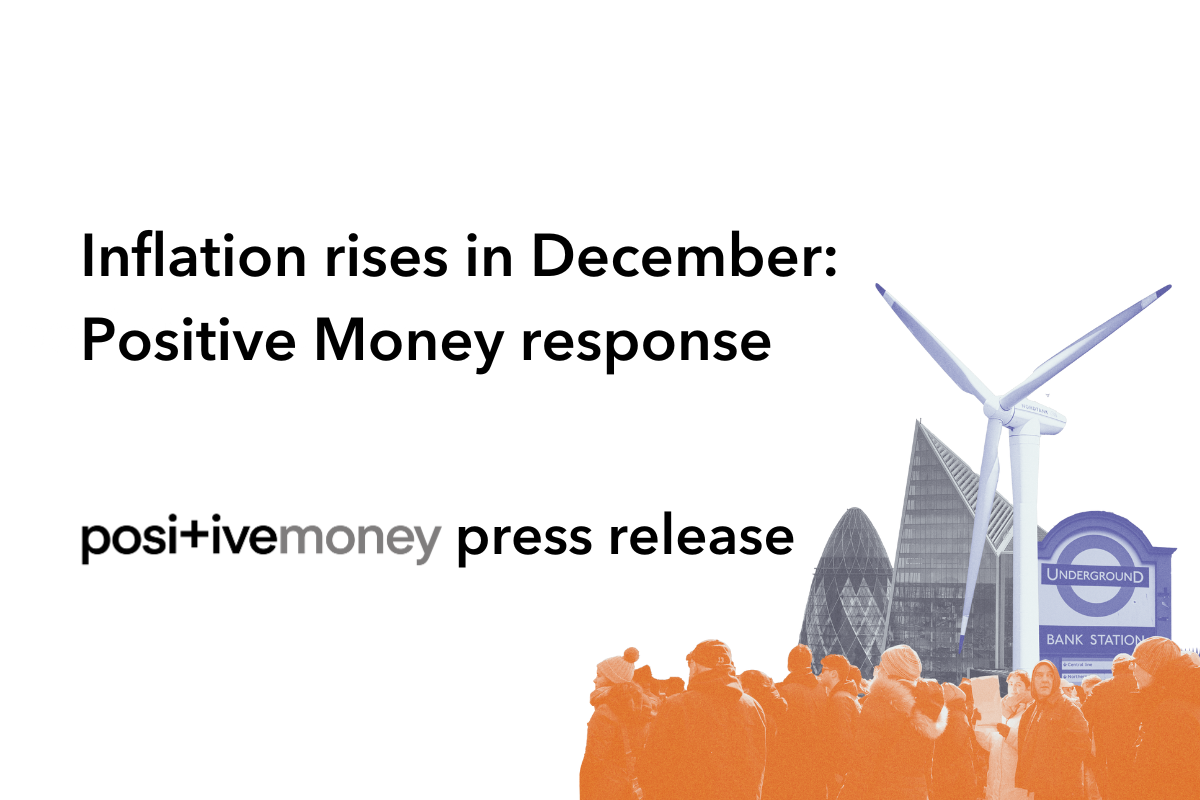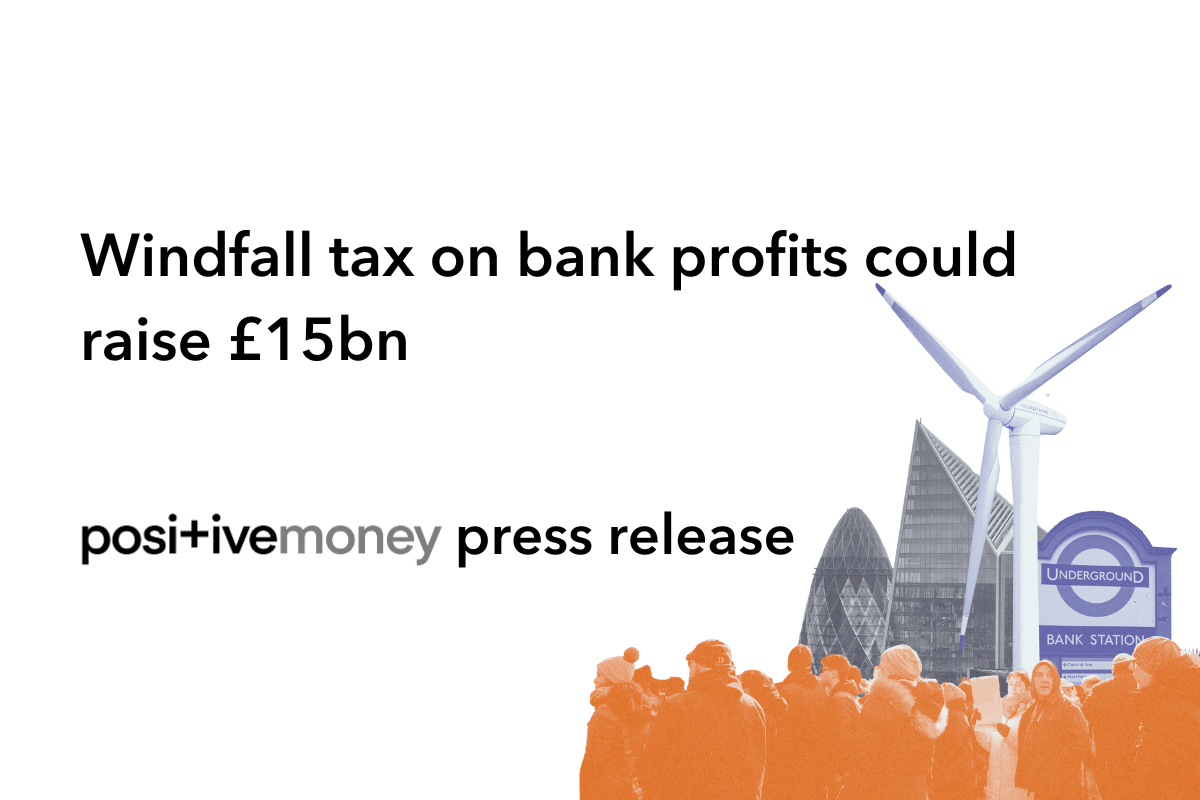
Monetary policy and inequalityUK
21 January 2026
Campaigners argue this could prevent spending cuts
London, 20 February 2025 - A windfall tax on the record profits of Britain’s biggest banks could bring in nearly £15bn for the public finances, according to new analysis from research and campaign group Positive Money.
Lloyds Bank became the last of the ‘Big Four’ British banks - succeeding HSBC, Barclays and NatWest - to announce its full pre-tax profits for 2024 this morning, which stood at £6bn. This takes the total pre-tax profits of the ‘Big Four’ up 3% on 2023 to a record £45.9bn for 2024.
These profits far outstrip the £25.6bn those same banks made on average between 2018 and 2021, before the Bank of England started raising interest rates.
Based on this sum, Positive Money calculates that an additional £14.7bn could be raised for the Exchequer this year from the ‘Big Four’ banks alone by increasing the existing surcharge on bank profits from 3% to 35%, in line with the government’s windfall tax on energy companies.
Although the former government introduced the surcharge on bank profits in 2015, in recognition of the need for banks to make an added contribution because of the risks their activities pose to the wider economy, former Chancellor Jeremy Hunt cut the surcharge by 60% in his 2022 Autumn Statement, from 8% to 3%. The current Chancellor has yet to undo this tax break for banks.
As well as higher interest payments from households and businesses, much of banks’ windfall also comes from the interest the Bank of England is paying on banks’ risk-free reserves, which the government is footing the bill for. Recent figures from the Bank of England suggest that £150bn could be paid by the government to the Bank of England by 2030 - around £30bn a year.
Simon Youel, Head of Policy and Advocacy at Positive Money, said:
“Bank profits are currently a burden on the public finances as the Treasury continues to foot the bill for the tens of billions in interest that the Bank of England is paying on banks’ risk-free reserves.
“These windfall profits vastly outstrip pre-pandemic earnings, and are not the result of banks offering greater value to society - rather they’ve actively cut branches and jobs across the country.
“Spending cuts shouldn’t even be on the table when such an obvious source for improving the public finances stares the government in the face. If the Treasury won’t stop covering the Bank of England’s losses, it should at the very least tax back some of the windfalls banks are receiving as a consequence.”
Notes
Today’s profit announcement from Lloyds Bank can be found here: https://www.lloydsbankinggroup.com/investors.html
New figures from the Bank of England show up to £150bn could be paid out from the Government by 2030 to cover losses from quantitative easing, much of which will be paid to banks in the form of interest on their risk-free reserves. This amounts to roughly £30 billion a year in transfers from the Treasury to the Bank of England over the next five years, according to the Bank’s latest projections: https://www.bankofengland.co.uk/asset-purchase-facility/2024/2024-q4
Yuan Yang, MP for Earley and Woodley, asked the Treasury about this massive transfer last week: https://x.com/PositiveMoneyUK/status/1890340273739161767
About Positive Money:
Positive Money is an international research and campaign organisation working to redesign our economic system for social justice and a liveable planet. Set up in the aftermath of the financial crisis, Positive Money is a not-for-profit company funded by charitable trusts and foundations, as well as small donations from its network of supporters. Find out more: www.positivemoney.org
